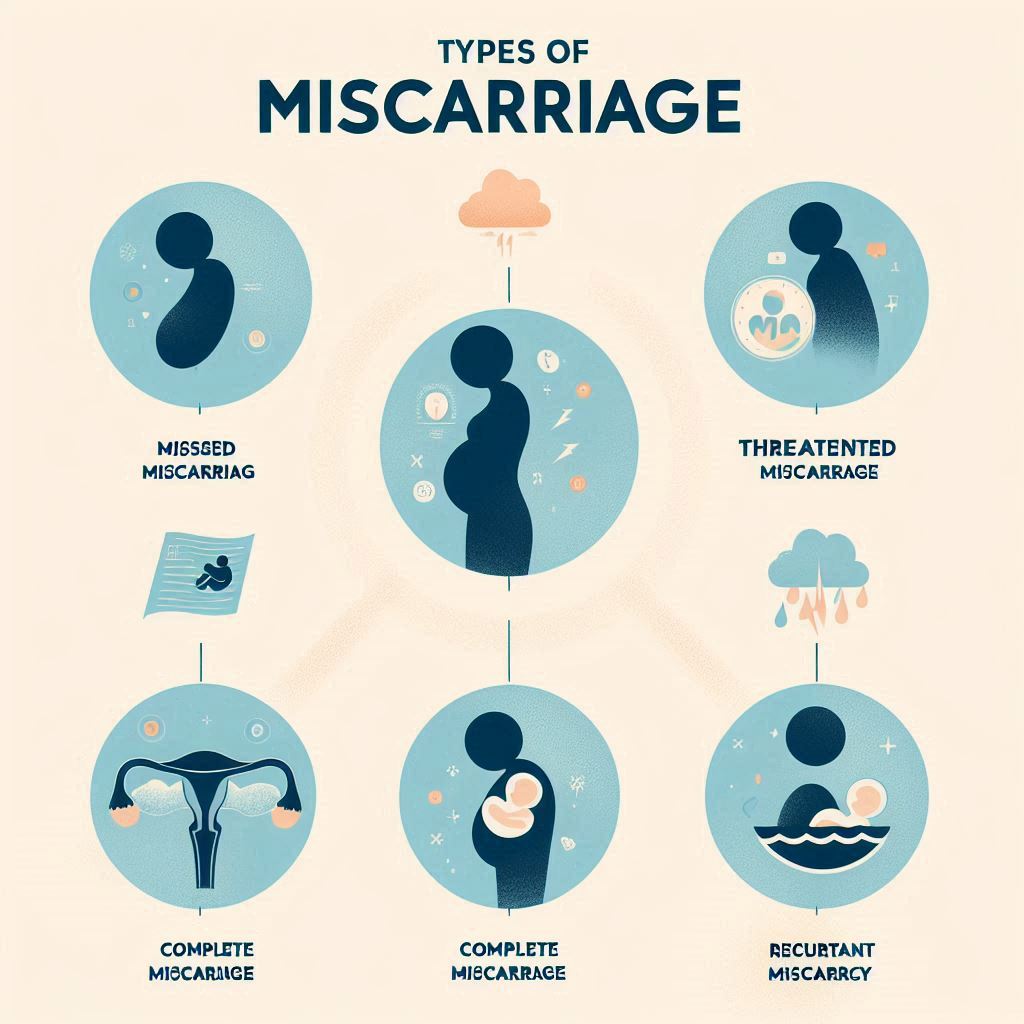Miscarriage can be an incredibly emotional and overwhelming experience, often leaving those affected searching for answers. One of the first questions people ask after going through a miscarriage is: What are the most common causes of miscarriage? Why did this happen? What caused it?
In many instances, particularly with early miscarriages, pinpointing the exact cause can be challenging. In reality, experts emphasize that it’s more remarkable for a pregnancy to progress without complications than it is for one to end in miscarriage.
“When you think about the process of a new human being forming, with two sets of genetic material coming together and everything that needs to go perfectly, it truly is miraculous when it happens,” says Dr. Elizabeth Nowacki, an OB-GYN at St. Vincent Fishers Hospital in Indiana. “Sometimes, things just don’t go right, and miscarriage can be nature’s way of ensuring the pregnancy isn’t viable.”
Although many people may blame themselves for a miscarriage, the truth is that most causes are beyond your control. Here’s what you need to know about miscarriage, including some common causes and risk factors.
What to Know About Miscarriage: What are the most common causes of miscarriage?
A miscarriage is the spontaneous loss of a pregnancy before the 20th week. Miscarriage can occur in a variety of ways, and depending on the type, people may experience different symptoms. The type of miscarriage is often determined by how far along the pregnancy is when the miscarriage is diagnosed. Below are some common types:

- Missed Miscarriage: In this type, the embryo has died, but the body hasn’t expelled the tissue. Often, there are no symptoms, and the miscarriage is only discovered during an ultrasound.
- Threatened Miscarriage: This occurs when there is vaginal bleeding and cramping, but the cervix remains closed. It does not necessarily mean that the pregnancy will end.
- Inevitable Miscarriage: This happens when there’s vaginal bleeding and the cervix is dilated. At this point, the miscarriage is unavoidable.
- Complete Miscarriage: A complete miscarriage means that all pregnancy tissue has been passed, and the uterus is empty.
- Recurrent Miscarriage: This is when a person experiences three consecutive miscarriages, which is rare and affects around 1% of pregnant individuals.
Common Causes of Miscarriage
While it’s often impossible to determine the exact reason for a miscarriage, there are known factors that can increase the likelihood of pregnancy loss. Here are nine of the most common causes of miscarriage in early pregnancy:
- Chromosomal Abnormalities
The most frequent cause of miscarriage is a genetic abnormality in the embryo. According to the American College of Obstetricians and Gynecologists (ACOG), when the chromosomes from the egg and sperm come together, a “glitch” can occur, causing the embryo to stop developing. While some genetic conditions, like Down syndrome, are compatible with life, others are not. Miscarriages caused by chromosomal abnormalities are more likely in those over 35, as eggs age along with the person carrying them. - Thyroid Disorders
Both hypothyroidism (underactive thyroid) and hyperthyroidism (overactive thyroid) can interfere with pregnancy. An underactive thyroid can suppress ovulation, while an overactive thyroid can prevent the uterine lining from properly supporting a pregnancy. - Diabetes
Uncontrolled diabetes, especially in the first trimester, can increase the risk of miscarriage and birth defects. It’s essential for people with diabetes to work with their healthcare providers to maintain stable blood sugar levels during pregnancy. - Physical Complications
Some physical conditions can contribute to miscarriage, particularly in the second or third trimester. Uterine abnormalities such as fibroids, a septate uterus, or scar tissue from surgeries may impede implantation or disrupt blood flow to the fetus. - Blood Clotting Disorders
Certain rare blood clotting disorders, such as Factor V Leiden, can increase the risk of miscarriage. While these are less common, a doctor may test for clotting disorders after recurrent miscarriages. - Hormonal Imbalances
Sometimes, the body doesn’t produce enough progesterone to maintain the pregnancy, causing an early miscarriage. However, this is relatively uncommon and usually only tested for after multiple miscarriages. - Drug, Alcohol, or Tobacco Use
Lifestyle factors such as smoking, alcohol, and drug use during pregnancy have been linked to increased risk of miscarriage. It’s recommended to avoid these substances before and during pregnancy to reduce the risk. - Immunological Disorders
Autoimmune disorders like lupus may play a role in miscarriage, particularly in recurrent cases. In these instances, the body may reject the pregnancy as foreign. Some antibodies, such as those linked to anti-phospholipid syndrome, have been associated with higher rates of miscarriage. - Placenta Problems
Issues with the placenta, such as an abruption (where the placenta detaches from the uterine wall), can cause miscarriage, particularly in the second trimester. In some cases, the placenta may not develop properly, leading to pregnancy loss.

Read More: Common Reasons for Miscarriage in the First Trimester
When Does the First Trimester End? A Complete Guide to Early Pregnancy
Risk Factors for Miscarriage
While miscarriage can occur due to a wide range of causes, there are additional factors that may increase the risk:
- Advanced Maternal Age: People over 35 have a higher risk of miscarriage.
- Infections: Certain infections, such as Lyme disease or Fifth disease, can lead to pregnancy loss.
- Air Pollution: Exposure to pollutants, like nitrogen dioxide, has been linked to increased miscarriage risk.
- PCOS: People with polycystic ovary syndrome (PCOS) have a higher risk of miscarriage, potentially due to insulin resistance.
Misconceptions About Miscarriage
Despite popular belief, several things do not cause miscarriage. These include:
- Having sex
- Exercising
- Stress or sudden fright
- Most medications
- Morning sickness or nausea
- Traveling
- Vaccinations
Reducing Your Risk of Miscarriage
In many cases, miscarriage cannot be prevented, especially when it’s caused by chromosomal abnormalities. However, maintaining good health before conception can increase the chances of a healthy pregnancy. Experts recommend:
- Taking prenatal vitamins two to three months before trying to conceive
- Reviewing medications and chronic conditions with an OB-GYN
- Avoiding alcohol, tobacco, and recreational drugs
While miscarriage is common, it doesn’t mean it isn’t significant. If you’ve experienced a loss, reach out for support, and don’t hesitate to talk to your healthcare provider about planning for future pregnancies.
Key Takeaway
Around 20% of all known pregnancies end in miscarriage, and while it’s not always possible to know the cause, many people go on to have healthy pregnancies afterward. If you have concerns about your risk or believe you’re experiencing symptoms of miscarriage, contact a healthcare provider immediately.
Read More: Week-by-Week Symptoms of Pregnancy
5 Ways to getting ready for baby arrival











1 thought on “What are the most common causes of miscarriage? 9 Possible Causes of Miscarriage”